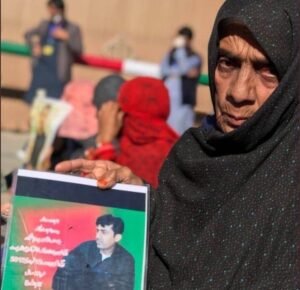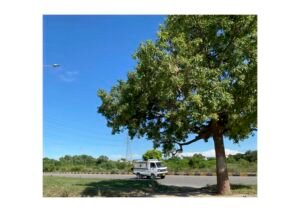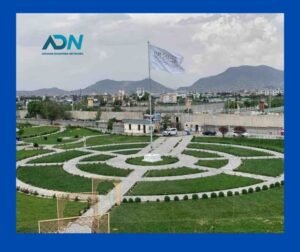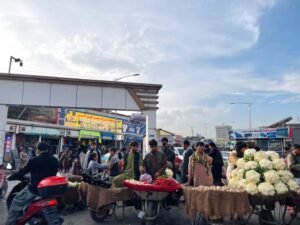Torkham Tensions: Afghan-Pakistani Border Woes Escalate
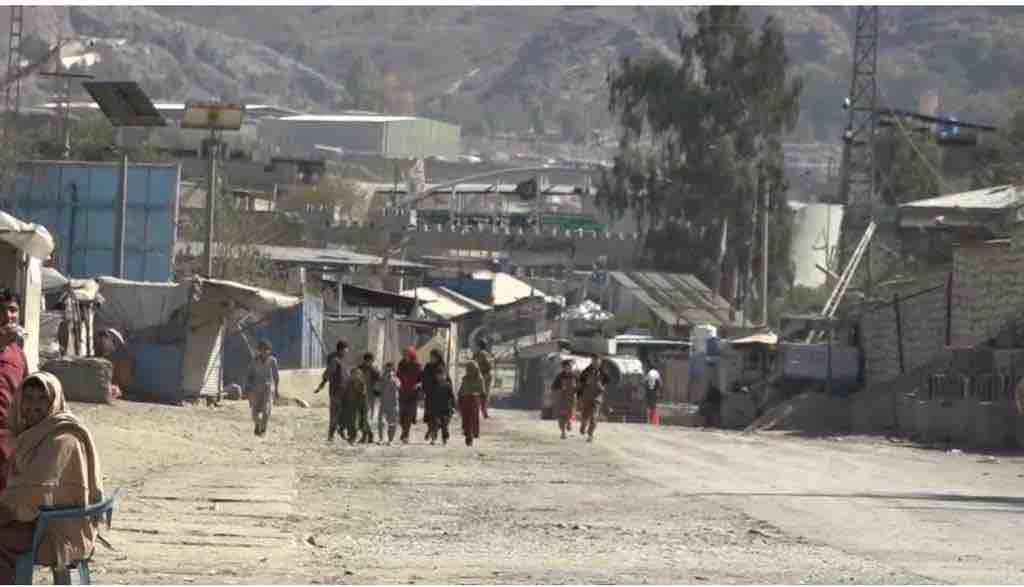
Eastern Afghanistan's bustling Torkham crossing, a key link to Pakistan. Afghanistan does not recognize Durand Line as its official border. 📸 @private
By Kadeem Baloch
In a development that has sent shockwaves through the trade routes between Afghanistan and Pakistan, a significant number of trucks and cargo vehicles find themselves stranded at the Torkham border crossing. This predicament arose after Pakistan, on January 13, implemented stringent measures requiring Afghan drivers to possess valid passports and visas to enter the country.
The Federal Government of Pakistan had introduced the Border Management policy in 2016, which stipulated that only individuals with passports and valid visas could travel through the Torkham border crossing. However, the practical implementation of this policy at the Afghanistan-Pakistan border did not materialize until January 2024. Consequently, Afghan drivers lacking passports are now prohibited from entering Pakistan through this crucial crossing.
The decision by Pakistan to enforce these measures has drawn criticism from Taliban authorities who view it as a hastily made unilateral decision adversely affecting the livelihoods of people on both sides of the border. The repercussions of this action are vividly evident as hundreds of goods-laden trucks remain stranded on the Afghan side of the border due to the stringent implementation of these new regulations.
In response, Taliban authorities have reciprocated by preventing Pakistani cargo vehicles from entering Afghanistan. Despite talks between Taliban and Pakistani officials, an agreement to reopen the Torkham border crossing, the busiest between the two nations, remains elusive.
Mullah Adil, the spokesperson for the Taliban governor in Nangarhar, who was associated with the talks, expressed the lack of progress in the discussions. The Torkham border crossing connects Pakistan’s Khyber Pakhtunkhwa Province to Afghanistan’s Nangarhar Province through the historic Khyber Pass.
Border Closure’s Economic Fallout
The closure of the Torkham border crossing has far-reaching economic consequences. Many of the stranded trucks are carrying perishable goods such as oranges, tangerines etc. and would be a big loss for the traders and the farmers. The functioning of the Torkham border has increasingly becoming unpredictable for the traders/businessman on both sides. This has affected the forward and backward linkages connected with this trade, resulting in substantial commercial losses for both countries. With Pakistan’s economy on the verge of collapse, this action by Pakistani authorities would further weaken their fragile economy.
Further, truckers stranded at the border are facing dire circumstances, lacking food and water for basic needs.
The impact of Pakistan’s measures extends beyond Torkham, as Islamabad has also closed the minor border crossings of Dand-e Pathan and Kharlachi, Ghulam Khan. Additionally, Angor Adda and Chaman, the second-largest border crossing, have been closed for over two months.
The recent closure of the Torkham border crossing follows the visit of Pakistani Islamist politician Maulana Fazlur Rehman to Kabul. The weeklong visit aimed to mend strained ties between the two nations and included a meeting with the Taliban’s supreme leader, Haibatullah Akhundzada. However, nothing much has progressed subsequent to this visit, showing the strong distrust brewing between both neighbours.
Border Tension Escalate
Pakistan’s actions are part of a broader strategy implemented since October, involving the expulsion of over half a million undocumented Afghans. This move is an outcome of Islamabad’s accusation against the Taliban Government of sheltering TTP militants.
Pakistan’s attempt to unilaterally regulate cross-border movement for Afghans and ethnic Pashtuns along the Durand Line border has faced vehement opposition from Kabul and affected Pashtun communities. Angor Adda and Birmal, a smaller border crossing, have been intermittently closed for over two months, eliciting demands from the local Ahmadzai Wazir tribe, living on both sides of the border, for unrestricted travel and improved trade facilities.
Pakistan’s unilateral action to rescind their century-old rights to cross the border using just their identity documents has rattled other Pashtun communities.
In Chaman, situated in Balochistan Province, protests have been ongoing since October 21 against the imposition of travel documents. The town borders Spin Boldak in Kandahar, and the demonstrators, including traders and porters, have voiced their concerns. Protestors in Chaman, warned that their sit-in protest would escalate to a hunger strike if Islamabad does not meet their demands by January 31.
As tensions persist and the economic toll deepens, the situation at the Afghanistan-Pakistan border remains precarious, with the fate of trade and travel hanging in the balance.
The author chooses a pseudonym. Kadeem Baloch is a freelance journalist based in Pakistan.
Note: The contents of the article are of sole responsibility of the author. Afghan Diaspora Network will not be responsible for any inaccurate or incorrect statement in the articles.





